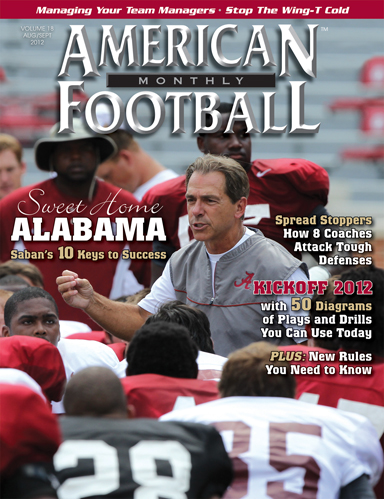Article CategoriesAFM Magazine
|
Managing Your Managersby: Brent SteuerwaldRetired Head Coach Shenendehowa High School (NY) © More from this issue Most coaches have a good handle on their responsibilities and those of their players. In many programs, these responsibilities are very detailed and almost always put in writing. But often overlooked are the roles and responsibilities of team managers. That’s unfortunate, since having solid, detail-oriented team managers can be a blessing to a coaching staff – giving them more time to focus on helping their players be successful on the field. In my coaching career, I placed great value on having good team managers. I gave my managers many responsibilities and demanded a lot of them but I also treated them as members of the team. I encouraged players who did not make the final squad to remain part of the team as managers – a role which many gladly accepted. Whatever the size of your program or the num....The full article can only be seen by subscribers.
|
|
|||||||
| HOME |
MAGAZINE |
SUBSCRIBE | ONLINE COLUMNISTS | COACHING VIDEOS |
Copyright 2025, AmericanFootballMonthly.com
All Rights Reserved





